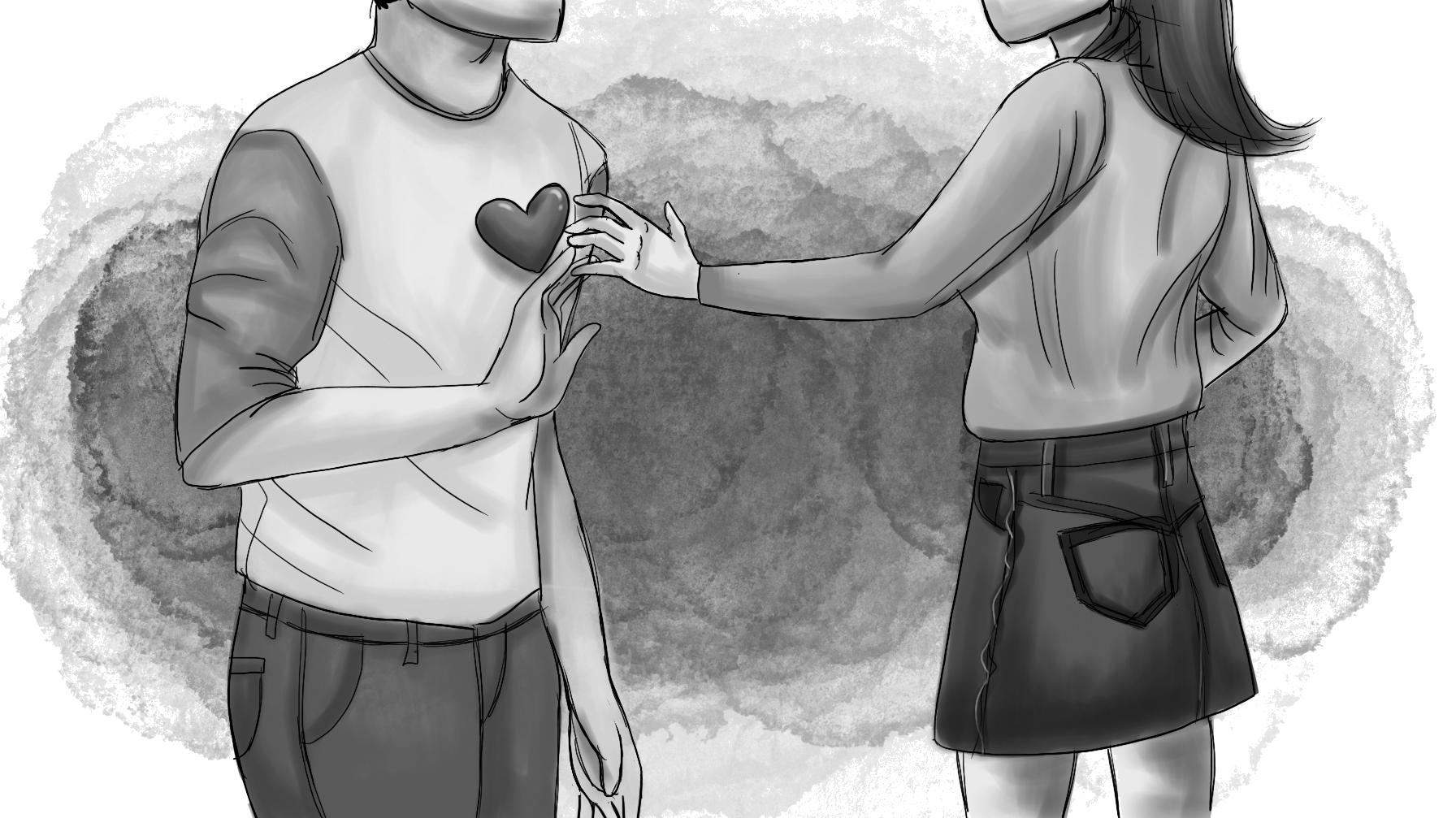
Isabel Lee
Have you ever tried to peer through a glass? It could be a window, a glass door or a store front. Maybe you’re looking for someone inside, or trying to see what it is. If you have, do you remember trying — really really trying — to seeing inside, but catching nothing but your own reflection?
I think that the way in which we approach others in our relationships is often remarkably similar to that experience. Upon meeting someone new, we try really hard to see them, to understand them, to connect with them. But the more we stare, the more we get distracted by what we project onto them, by what we’d like for them to be, rather than what they truly are. We get so distracted by their reflection, that we forget to actually see what lies behind the shiny surface, and we lose sight of how to engage with them.
I: need affection.
I: need honesty.
I: need space.
I: need more.
This trope is very present in our conversations about romantic relationships on Yale’s campus. Did your significant other cheat on you? They’re a bad person. Did the person you were seeing suddenly ghost you? They suck, don’t waste your time. Did you find out that your latest conquest was not as shiny as they seemed at first? You deserve better.
The underlying assumption behind those claims is true: You deserve to be treated with respect and affection; you have a right to honesty and transparency; and you should expect the person to whom you make yourself vulnerable to treat you with an appreciation of the fact that you experience emotion, regardless of whether they are reciprocating that emotion.
However, I have always found assigning normative values to people’s character to be a tricky business. While repeated, intentional behaviors are definitely illuminating to the complexities of another person’s psyche, we can never fully know what hides behind the curtain. Whether we like it or not, we only get access to the behind-the-scenes of one movie, and that’s the movie of our own lives.
I have found that, at least in my experience, those who are happiest in their relationships — be they friendships or romantic relationships — have developed the capacity to see others in their wholeness. To learn to love and appreciate them, not just for their awesome qualities, but also for their flaws. Those people approach others without expectations, without demanding that they change those things about themselves that they dislike or feel do not match up with what they would like to see in them.
This attitude allows for a very important space: the possibility of positive improvement. If your partner remains the same, you know what to expect, what is reasonable to ask of them and how to approach your relationship. If they change for the better, that’s a pleasant surprise, rather than the fulfillment of an expectation.
Seeing people for who they are rather than who you’d like them to be is no easy task, particularly when it comes to romantic relationships. When we first become enamored with a person, it’s hard to see them in their wholeness. We tend to become enthralled with their adorable quirks, their generous laughter, the way they look at us — and, for once, really really see us.
And then, eventually, they fall short of our expectations. Maybe they lie, or maybe they cheat, or maybe (God forbid!) they fall out of love. Maybe they care about us in a different way than we care about them, maybe they speak different love languages or maybe they’re just not that into us to begin with.
Yes, you can and will feel hurt. Being realistic with regards to your expectations of others will in no way shelter you from heartbreak, but there is a small change that could help soften the blow.
Maybe, rather than blaming the other person for failing to control their emotions, or the actions that those emotions lead to, we could cut them some slack. We could listen to what they are trying to say — be it with their words, their actions or, most importantly, their silences. Then and only then, after seeing past our reflection and into the other side of the seeing glass, do we get to make a choice: Can I find a way to be happy with what this person is capable of giving me?
If the answer is yes, great. If the answer is no, then maybe you’ll come to realize you no longer have a space for that person in your life. Without any anger, without any remorse, without any spiteful feelings. Appreciate what they gave you: the moments of laughter, the passionate kisses, the dramatic fights, the profound feelings of pain. The wholeness of the experience, that is so unique and irreplaceable in being young, foolish and in love. Thank them, inwardly or outwardly, for what they added to your life. And then let them go.
As someone who is obsessed with closure, allow me to share my humble insight. No one can give it to you. The only place you can find closure is within yourself, and the only way to get there is to make the conscious realization that your journey with any given person has come to a close.
Seeing others through a transparent glass rather than a one way mirror is the only way to be fair to one another. We can’t impose our expectations on people who aren’t ready, or willing to take them on. We can’t blame others for our failure to listen to what they are trying to tell us.
So, perhaps, the next time you meet someone and start feeling that little tingle in your stomach, give yourself a second. Take a step back. Make sure your reflection is out of the way. And do your best to peer through the seeing glass.
Sophia Catsambi | sophia.catsambi@yale.edu .







